… even if you’re not a scientist!
It would be hard not to notice the renewed focus on science & technology these days. Lately not a week goes by without the media discussing how science will impact on our lives and how the next generation needs to have a strong grasp of science to understand and thrive in a rapidly changing world. Pundits have even coined STEM as an acronym, standing for Science Technology Engineering & Mathematics to highlight these disciplines as interconnected (although you might also see STEAM, where the Arts are included too). You’ll often hear politicians, company directors, education leaders, scientists and futurists talk about STEM as critical for all aspects of our future.
But what does this all mean for someone who’s not a scientist? Is STEM really that important in our day to day lives? Why is science important when there are so many other issues to deal with too? What if you never liked science classes? In short, why should you care?
Understanding fake news & pseudoscience
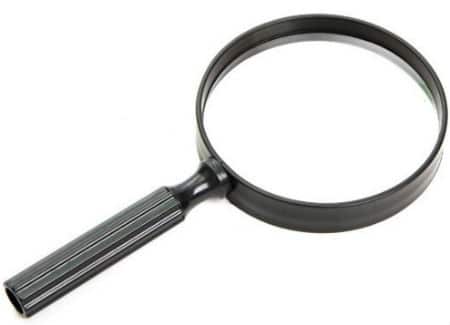
Are people simply making stuff up? Can you tell? Also known as science literacy, having knowledge of scientific processes and discoveries gives you a strong chance to work out if the article you’re reading is misleading or downright rubbish. Fake news and pseudoscience have become so prevalent across the internet that we’re exposed to it daily through social media, causing world leaders to be deeply concerned about it’s potential for negative consequences. Some of these fake news articles and videos can be highly persuasive and it’s only through your knowledge of how the world the works that you can make a decision whether what you’ve come across is real or simply made up. This makes it easy to be tricked into believing something that isn’t accurate if you haven’t got a background in the area!
The good news is that by having a strong grasp of how to fairly evaluate a given article by checking its sources and measuring it against known & measurable scientific knowledge gives you a strong chance not to be misled. Real science involves variable testing by third parties, real scientific knowledge evolves as new discoveries are made, real science depicts results accurately and cites how these results were obtained. Fake news and pseudoscience articles avoid these points and use fancy jargon to sound scientific. Even if you haven’t got a background in a particular science, having science literacy arms with the knowledge on what to look for in an article can save you from falling for a scam.
Science makes life easier at home
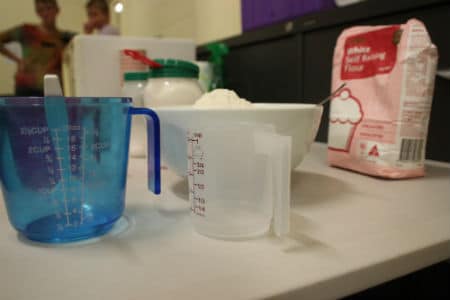
Science does need to just be in a lab! You can use science a variety of different ways at home…
- Want to create the best BBQ sauce ever? Test different recipes!
- Not sure which washing powder is making you itchy? Test different powders!
- Struggling to control pests in your garden? Test different control techniques!
- Wondering which fuel gets the best economy for the car? Test different fuels!
When it comes down to it, science is just a methodical way of thinking. If you change one thing, will you get a different result? You don’t have to be a scientist to benefit from the scientific method. By using science you might find new ways of doing things at home that could save you time, money and stress. This way of thinking could also extend to where you work too.
Appreciation for the little things

The world is simply amazing! It’s easy to rush through everyday life without taking notice of the things happening around us.
- Those cicadas you might hear in summer, they could well have been dormant in the ground for 10 years.
- When you look up into the night sky you’re looking back in time, as that starlight has taken a long time to get to you.
- Those roller coasters you ride change your weight throughout by changes in acceleration.
- Look closely at the sunset and you might see a faint rainbow running across the horizon
- The complexity of a flower under a magnifier is amazing
… and so much more! All of us have a great appreciation of beauty, but knowing why things happen, takes us that little bit deeper. There are many ways that you encourage a love of science in your kids, you highlight the little things bushwalks, there are science lessons whilst baking cakes, you could invest in a digital microscope to look at things up close and so much more. It’s all about creating a discovery mindset and an appetite for learning that will hold for life.
Science drives positive change.
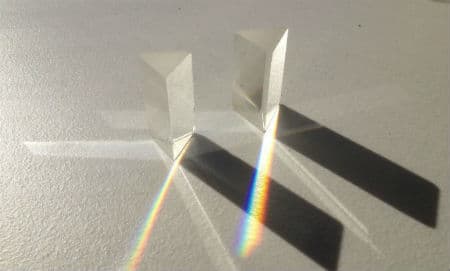
Understanding that science drives positive changes is important, even if you yourself are not involved in the discovery making. By supporting agendas that promote scientific reason, you ensure that the world will better for you and your family, now and into the future. From looking after the environment to improving health outcomes, from creating new materials that enable space travel to understanding our ancient history, scientists work constantly to discover how the world works and to apply this knowledge for all our benefit.
Happy teaching,
Learn how to work as a scientist and check out our “Scientific Method” workshop.
NEW Primary science teaching book!
“Be Amazing! How to teach science, the way primary kids love”
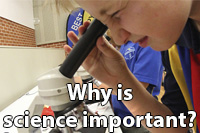

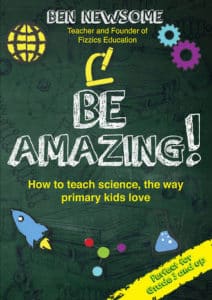

























thanks for the anwers.
I appreciate. Keep on providing such conducive environment for everybody